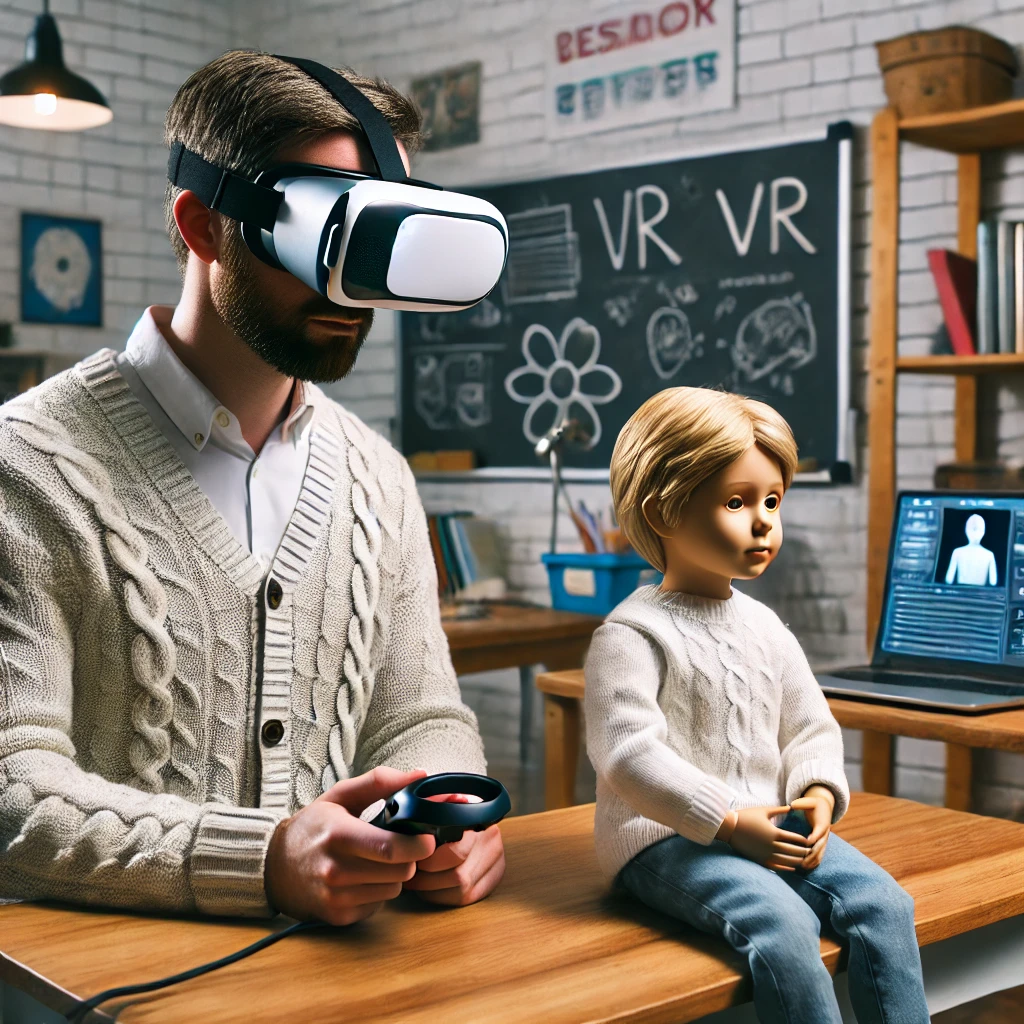Empowering Educators: The Role of VR in Teacher Training for Suspected Child Sexual Abuse

In a groundbreaking study from the Berlin Psychological University, the University of Kassel, and the University of Flensburg, researchers evaluated the effectiveness of ViContact, an innovative virtual reality (VR) training program designed to prepare student teachers for conversations with children about suspected sexual abuse. Conducted by a team of various German researchers the study aimed to address the critical need for effective training in child interviewing techniques amidst growing concerns about child sexual abuse (CSA).
Revolutionizing Child Interview Training with VR
Child interviewing, particularly in cases of suspected sexual abuse, requires adherence to best-practice guidelines, which emphasize open-ended questioning, socio-emotional support, and avoiding suggestive questions. Traditional training methods often fall short in equipping educators with these skills. The ViContact program was developed to bridge this gap by combining VR-based simulated conversations with automated feedback and classical online seminar training. The objective was to create a comprehensive training approach that could effectively enhance the practical skills and confidence of student teachers in handling sensitive conversations about CSA.
Methodology and Participant Groups
The study involved 110 student teachers divided into four groups: one received VR training alone, another attended seminar training alone, a third group experienced a combination of both, and a control group received no training. The training programs aimed to improve participants' use of recommended questions, supportive utterances, and self-efficacy in handling CSA suspicions. Researchers employed a pre-registered, randomized-controlled design and analyzed pre-post changes in behavior and attitudes using mixed ANOVA interaction effects.
Key Findings: Enhanced Questioning and Support Techniques
Key findings of the study revealed significant improvements across various metrics. Both VR and seminar training significantly enhanced the use of open-ended, non-suggestive questions. Participants in the VR training group saw an increase in the proportion of recommended questions from 42% at baseline to 77% at post-test. The seminar training group experienced a similar improvement, with recommended questions rising from 41% to 71%. However, the most notable gains were observed in the combined training group, where the proportion of recommended questions increased dramatically from 41% at baseline to 84% at post-test. These results underscore the effectiveness of combining VR with traditional seminar training in enhancing questioning techniques.
The study also assessed the impact of training on the provision of socio-emotional support, a critical component in child interviewing. Only the combined training group showed a significant increase in supportive utterances, rising from 19% to 29%. This finding suggests that providing socio-emotional support requires a deeper understanding and practical application that is best achieved through an integrated training approach. In contrast, neither VR nor seminar training alone led to significant improvements in this area, highlighting the limitations of using a single method for comprehensive skill development.
Boosting Confidence and Accuracy in Handling CSA
Another important outcome measured was the self-efficacy of participants in handling CSA suspicions. All training groups reported increased self-efficacy, with the combined training group experiencing the highest boost. Participants in this group saw their self-efficacy scores rise from 31 at baseline to 47 at post-test. The seminar training group also reported significant gains, with scores increasing from 34 to 44, while the VR training group saw a modest improvement from 37 to 40. These results indicate that confidence in handling CSA suspicions can be significantly bolstered through targeted training, particularly when multiple training modalities are combined.
In terms of correctly identifying critical events, participants in the combined training group showed a substantial increase in accuracy. The proportion of correct conclusions about the virtual children's critical memories increased from 21% at baseline to 59% at post-test. The VR training group also showed improvement, with correct conclusions rising from 17% to 35%, while the seminar training group saw a smaller increase from 12% to 27%. The control group, on the other hand, experienced a decline in accuracy, with correct conclusions dropping from 23% to 12%. These findings demonstrate the effectiveness of integrated training in improving real-world decision-making skills.
Integrating VR and Seminar Training
The study concludes that combining VR-based training with classical seminar approaches is most beneficial for preparing educators to handle sensitive conversations about suspected child abuse. The significant improvements observed in the combined training group highlight the potential of such innovative approaches to enhance practical skills and confidence among educators. ViContact, with its realistic simulations and comprehensive feedback, represents a significant advancement in professionalizing teacher training for CSA cases. The researchers suggest that VR exercises should complement, not replace, traditional training methods to maximize the benefits of both approaches.
The study underscores the importance of integrating advanced technological solutions like VR in educational training programs. The significant improvements in questioning techniques, socio-emotional support, and self-efficacy observed in the combined training group highlight the potential of such innovative approaches to enhance practical skills and confidence among educators. Future research should explore the long-term effects of such training and its applicability across different educational settings and regions. The findings of this study provide a strong foundation for further development and implementation of comprehensive training programs that leverage the strengths of both virtual and traditional learning modalities.
- FIRST PUBLISHED IN:
- Devdiscourse










